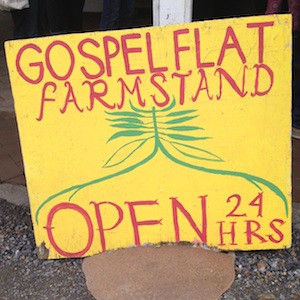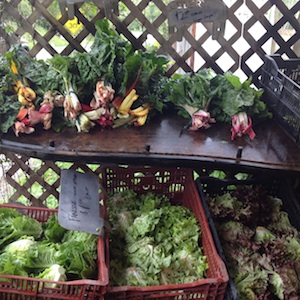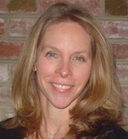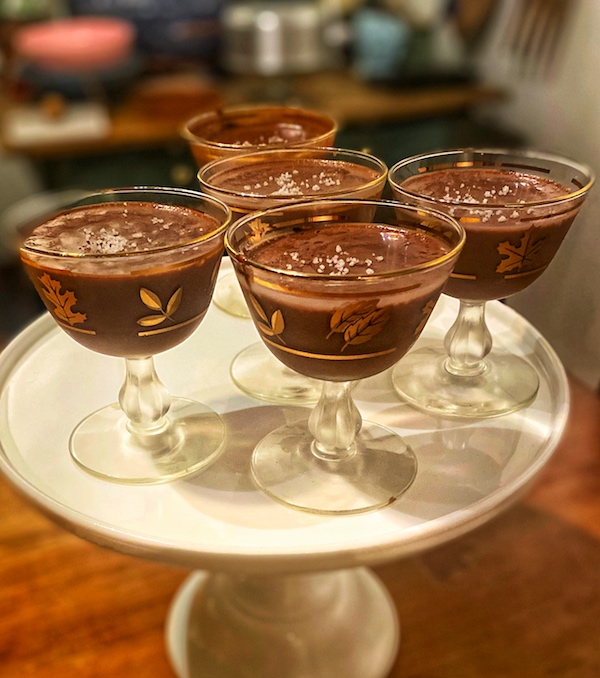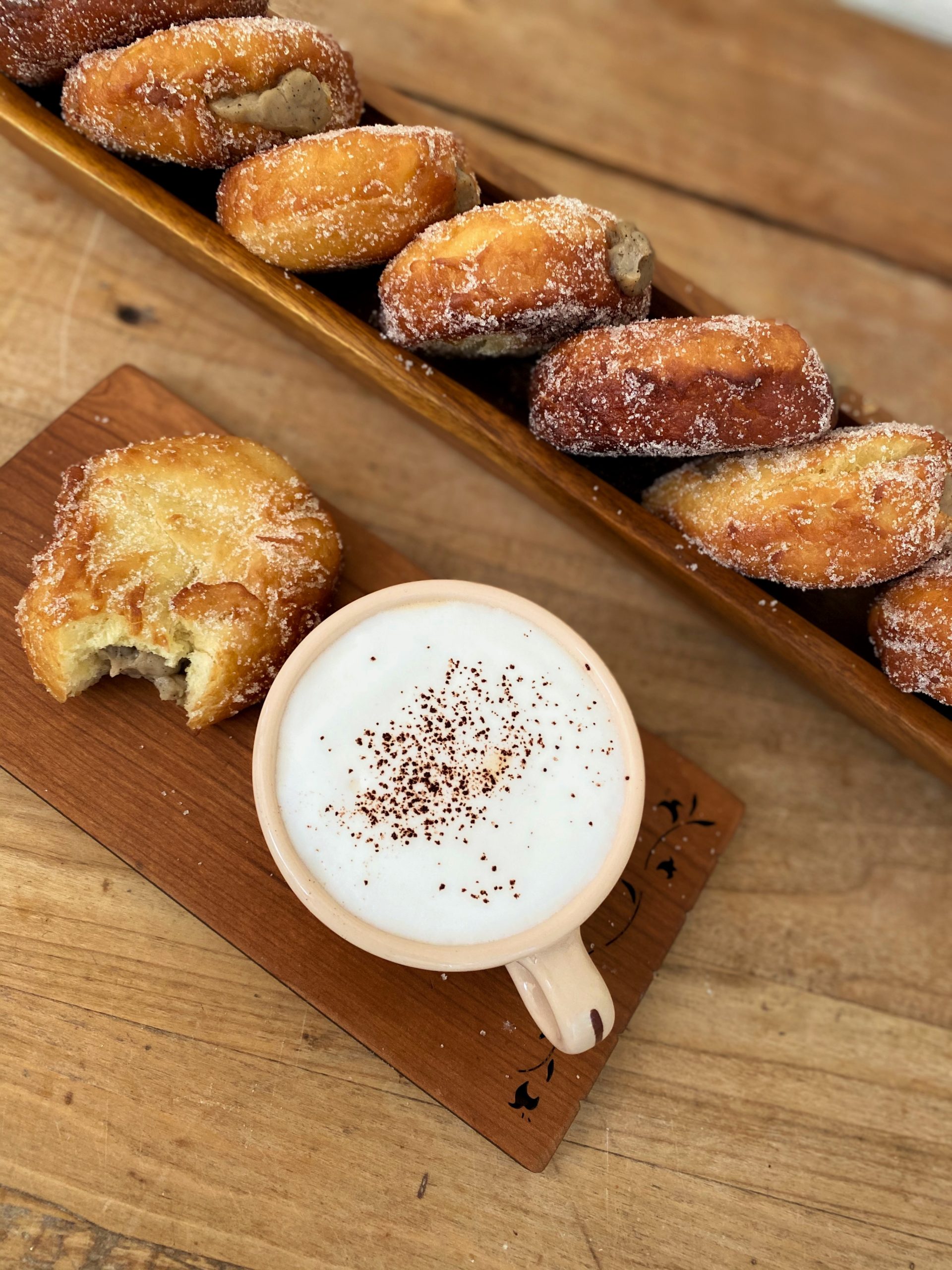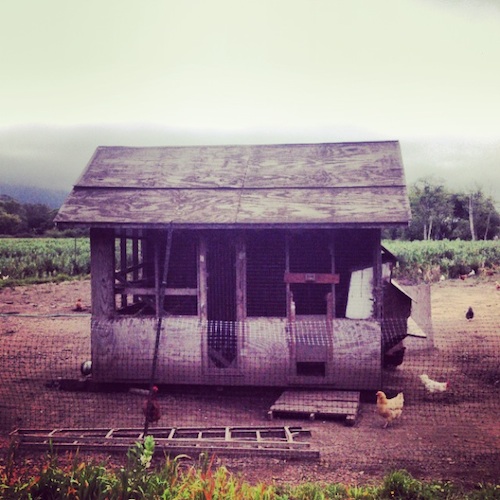
Yesterday, I took a break from sitting at my computer, and joined my son’s 5th grade class on an outing to visit Gospel Flat Farm. During the short drive to the farm, the five boys in my car kept me entertained with their singing, storytelling, and silliness, but that was only a warm-up for the joy we all experienced during our visit to the farm.
Immediately upon arrival at the West Marin farm, the boys jumped out of the car and ran to watch the chickens in action. As the rest of the class gathered with them at the chicken coops, we were greeted by a representative of Marin Organic, who introduced Mickey Murch, who helps operate the Gospel Flat vegetable farm, raise chickens, and maintain a 24-hour self-serve farm stand.
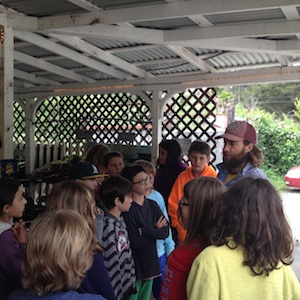
Murch, a bearded young man, immediately grabbed their attention. He taught them about raising chickens and tending to the land. He inspired them with his ability to create something with his own hands. He intrigued them with his homemade contraptions that make daily life on the farm easier (including a vacuum powered lettuce seed planting device and movable chicken coops). He taught them the importance of community, and, perhaps most importantly, he showed them the value of trusting individuals.
In the end, I’m not sure if was the 600 chickens, the picking of the carrots – and eating them with a bit of dirt on them, or the learning about the farm’s honor system of purchasing vegetables and eggs that captivated the children the most.
Gospel Flat Farm
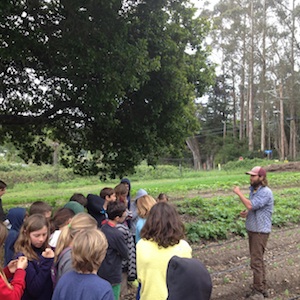
Mickey Murch tends the coastal farm at Bolinas, which is located in West Marin, California. Started in 1982 by his parents Don Murch and Sarah Hake, Mickey spent his childhood on the farm before heading off to college. There, he challenged himself to live a self-sustaining life. He made, recycled and found just about everything he needed to live off of. But he eventually realized that there was something wrong with the self-sufficient way of life.“I felt that it was kind of self-centered,” he explained to the fifth graders. “At one point, I decided that I needed to do something that was community centered.” That’s why he is back on the family farm, living a farmer’s life with his wife and children. And his new mantra is community centered, “Now, I’m growing food for everybody,” he says.
A Lesson in Trust
Upon returning to the farm after college, Murch learned how to best manage the 10-acre farm, and in the process found a new way to make the business profitable. He realized that in order for the farm to function to its true potential, there needed to be a change to way it used to function – selling to a wholesaler, and having to haggle with them about the price.
It took some time trying to figure out a better way to sell the things he grew (even inviting people to come pick their own). In the end, he decided that the produce would be kept at an unattended stand that would work on the honor system., i.e. customers would weigh the produce, and record and pay for what they took.
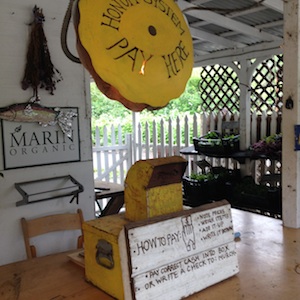 It is a concept that stumped many of these fifth graders. “You mean you just leave it out here for people to take? What if they don’t pay?”
It is a concept that stumped many of these fifth graders. “You mean you just leave it out here for people to take? What if they don’t pay?”
He explained to them that there is no better way to sell produce than the honor system. “It took a leap of faith to believe that it would work this way,” he tells them. “At first I was worried that someone might come by and take food without paying.” (A concept the kids wanted to explore a bit more). But, as Murch explained, “If someone takes the food and doesn’t have money, I’m OK with it. It means that the need it. But what I have found is that I believe in the good of people, and they are all honest.”
The farm stand honor system is a decicion Murch made several years back after realizing the cost of taking the food to market. Through a distributor, the cost of paying to get the food to market was very high, and “I didn’t want to haggle with someone about the price of my produce,” he said. Murch also explained that the Farmers Market concept didn’t work for him either. “It was very time consuming, and not cost effective to be away from the farm all day long.” As for the the farm stand, he knew that if he hired someone to work at the stand, the cost of having someone there all day long didn’t add up. “It just wasn’t worth it,” he said.
Seven years later, Murch admits that the plan worked. “The farm has made more money than it had before. And, you can accomplish much more when you don’t have to spend the time trying to sell your product to a middle man. Now, I can spend my time and energy doing what I love to do best – farming.”
The FarmStand is popular with the locals, and the tourists alike; most days selling out of all the vegetables and eggs.
Money in hands, the fifth graders bought their share of the food using the honor system. There were bunches of beets, kale and spring onions, cilantro, lettuce and flowers all heading home in the hands of the children.
Back at our home, Grayson couldn’t wait until Dad came home so he could tell him about his day’s adventures. He told his sisters that this was the best field trip ‘ever’ that he had been on.
In his excitement, he headed outside into our small – very small – yard to survey a plot of land on which he could plant some seeds. He dreamed of us living on a farm. “Oh, it would be so much fun, Mom,” he said, then immediately asked me to make beet chips with the beets he bought at the farmstand.
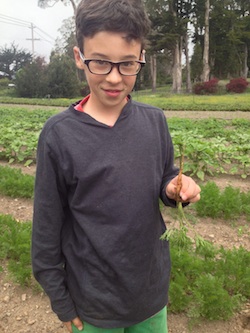
He may only be 10 years old, but I’m sure that wherever life takes him, he’ll have a huge garden filled with fruits and vegetables. (And, I have to say, Mickey may be 20 years my junior, but he inspired me as well. We must get planting!)
Marin Organic partners with local farms to promote organic agriculture, provide food system education, and increase access to fresh produce for people in need. We provide marketing support for our farmers and help them build relationships with local businesses.
Gospel Flat Farm is named for its location on the Pine Gulch Creek Delta in Bolinas, the former location of four churches. Started in 1982 by Don Murch and Sarah Hake, today Gospel Flat Farm is an important part of the local community. Together with their family they operate a vegetable farm, raise chickens, and maintain a 24-hour self-serve farm stand. The Gospel Flat Farm Stand makes it possible for this farm to sell the freshest possible produce and eggs directly to consumers, providing both a service to the community and making small-scale sustainable agriculture financially viable. Gospel Flat Farm has also created innovative spaces for mobile kitchen workshops, and art shows, illustrating this farm’s dedication to making positive contributions to the surrounding community.

